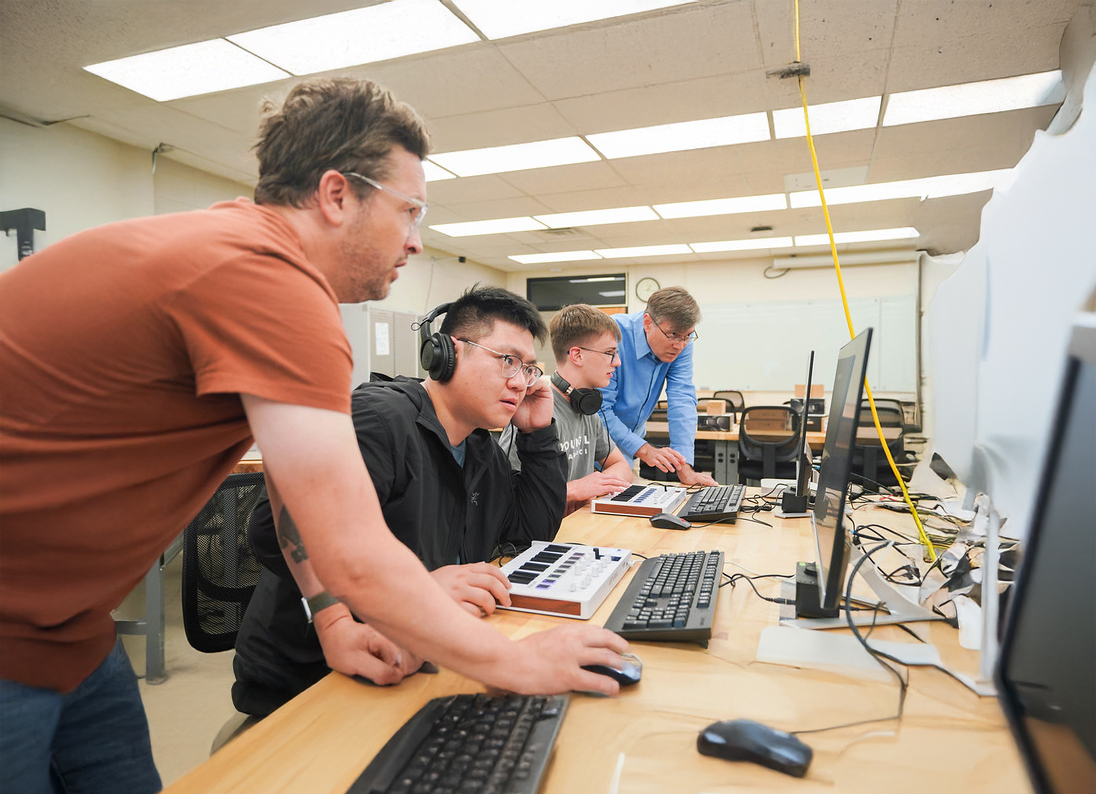New Data Science and Engineering Degree Prepares Mines Grads to Tackle Real-World Challenges

The demand for data scientists is skyrocketing, and South Dakota Mines is at the forefront of developing a new, highly-trained workforce equipped to take on the challenges of one of the fastest-growing fields in the world.
This fall, the university launched its bachelor's degree in data science and engineering – a multidisciplinary program that combines computer science, statistics and math and real-world problem solving to extract meaningful, actionable solutions from data. In 2022, the university introduced its doctoral program in data science and engineering, and plans to launch its master’s program in the fall of 2026.
Data science and engineering cuts across every discipline at Mines and has become a fundamental component in the advancement of all STEM fields.
“Mines has always been proactive about multidisciplinary teaming across the science and engineering domains,” said Randy Hoover, Ph.D., professor and assistant department head for electrical engineering and computer science and program coordinator for the data science and engineering programs. “Data science, an encapsulation of artificial intelligence, machine learning and predictive modeling, has become pervasive across many different science and engineering programs at Mines so creating a dedicated degree in the field was a good fit.”
The new program is also designed to meet increased industry demand and workforce needs. The U.S. Bureau of Labor Statistics projects a 36 percent growth in data science fields from 2021 to 2031, with an estimated 13,000 to 21,000 new job openings per year. The median entry-level salary for a data scientist is $100,000.
“Demands for data science roles span many different disciplines, ranging from tech companies to healthcare to finance and manufacturing,” Hoover said. “The new degree aims to create a cadre of data science graduates to fill these roles.”
Through the program, students can expect hands-on program projects, collaboration on capstone experiences, and research and internship opportunities alongside experts in the field.
Students will be introduced to key areas including artificial intelligence, machine learning, data visualization, ethics, governance and the broader societal impacts of data.
“Students will learn how to gain insights from data, build predictive models from data, develop professional reports and presentations for constituents and deploy machine learning models across different domains,” Hoover said.
Visit here for more information on the new Mines program.